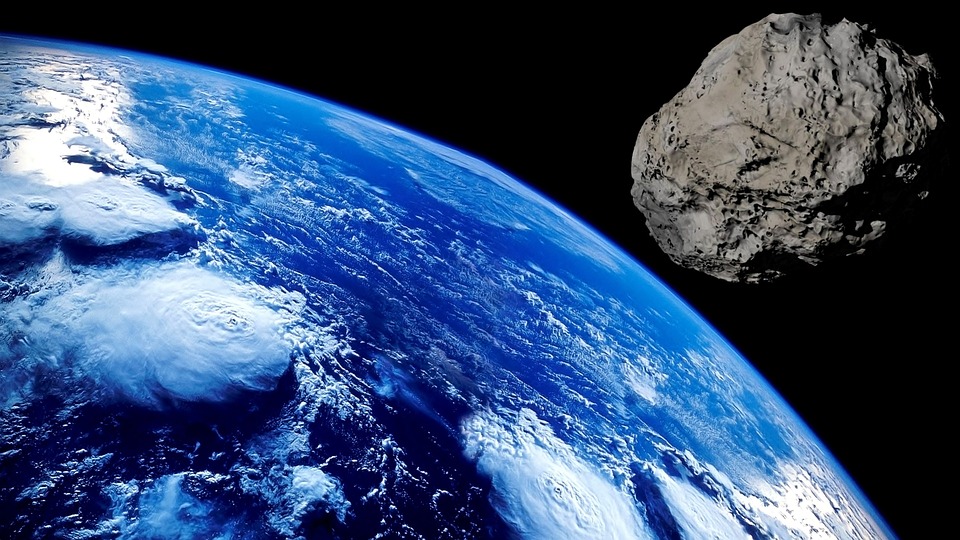The chances of an asteroid colliding into Earth in recent years and moving into the near future is slim but never zero. Following the latest, almost 4-kilometer asteroid passing by Earth, experts say that the planet has to be prepared for a potential collision.
A few days ago, the asteroid 1998 OR2 flew by Earth, getting as close as 6.29 kilometers. Having measured almost four kilometers in diameter, it was classified as a Potentially Hazardous Object or PHO because should it collide with Earth, the damage it would do would be on a global scale. Even though NASA assured everyone that OR2 would not strike as it passed by, Times writer Matthew Parris advised that being prepared for a potential asteroid collision has some similarities to preparing for a pandemic.
Speaking on Sky News, Parris explained that in the event of an asteroid collision, questions would rise on whether or not the country or the world was prepared. Parris then compared this to how countries have dealt with the current coronavirus pandemic. He explained that the Earth had to find a balance of understanding the probability of an asteroid collision and the time needed to prepare for such an event.
“Not a very near miss, the asteroid is coming within a few million miles of us. If a big asteroid did hit us, there would be columns saying how foolish we all are. These things can happen, it has happened, and we should be prepared for it,” said Parris.
In other related news, researchers at NASA found evidence that Venus may have had conditions that were suitable to support life. The researchers at the agency’s Goddard Institute for Space Studies found that the neighboring planet may have had a shallow liquid-water ocean as well as a habitable surface temperature that lasted for two billion years. The researchers were able to come up with their findings using a model that resembled the type used to predict changes in climates on Earth.
According to Michael Way, who was the lead researcher of the study in 2016, “These results show Venus may have been a very different place than it is today.”



 NASA Faces Major Workforce Reduction as 20% of Employees Prepare to Leave
NASA Faces Major Workforce Reduction as 20% of Employees Prepare to Leave  Cogent Biosciences Soars 120% on Breakthrough Phase 3 Results for Bezuclastinib in GIST Treatment
Cogent Biosciences Soars 120% on Breakthrough Phase 3 Results for Bezuclastinib in GIST Treatment  SpaceX Starship Explodes in Texas During Test, Citing Nitrogen Tank Failure
SpaceX Starship Explodes in Texas During Test, Citing Nitrogen Tank Failure  SpaceX’s Starship Completes 11th Test Flight, Paving Way for Moon and Mars Missions
SpaceX’s Starship Completes 11th Test Flight, Paving Way for Moon and Mars Missions  Neuren Pharmaceuticals Surges on U.S. Patent Win for Rare Disorder Drug
Neuren Pharmaceuticals Surges on U.S. Patent Win for Rare Disorder Drug  FDA Lifts REMS Requirement for CAR-T Cell Cancer Therapies
FDA Lifts REMS Requirement for CAR-T Cell Cancer Therapies  Tabletop particle accelerator could transform medicine and materials science
Tabletop particle accelerator could transform medicine and materials science  CDC Vaccine Review Sparks Controversy Over Thimerosal Study Citation
CDC Vaccine Review Sparks Controversy Over Thimerosal Study Citation  Astronomers have discovered another puzzling interstellar object − this third one is big, bright and fast
Astronomers have discovered another puzzling interstellar object − this third one is big, bright and fast  Lost in space: MethaneSat failed just as NZ was to take over mission control – here’s what we need to know now
Lost in space: MethaneSat failed just as NZ was to take over mission control – here’s what we need to know now  Blue Origin’s New Glenn Achieves Breakthrough Success With First NASA Mission
Blue Origin’s New Glenn Achieves Breakthrough Success With First NASA Mission  Neuralink Plans High-Volume Brain Implant Production and Fully Automated Surgery by 2026
Neuralink Plans High-Volume Brain Implant Production and Fully Automated Surgery by 2026 































